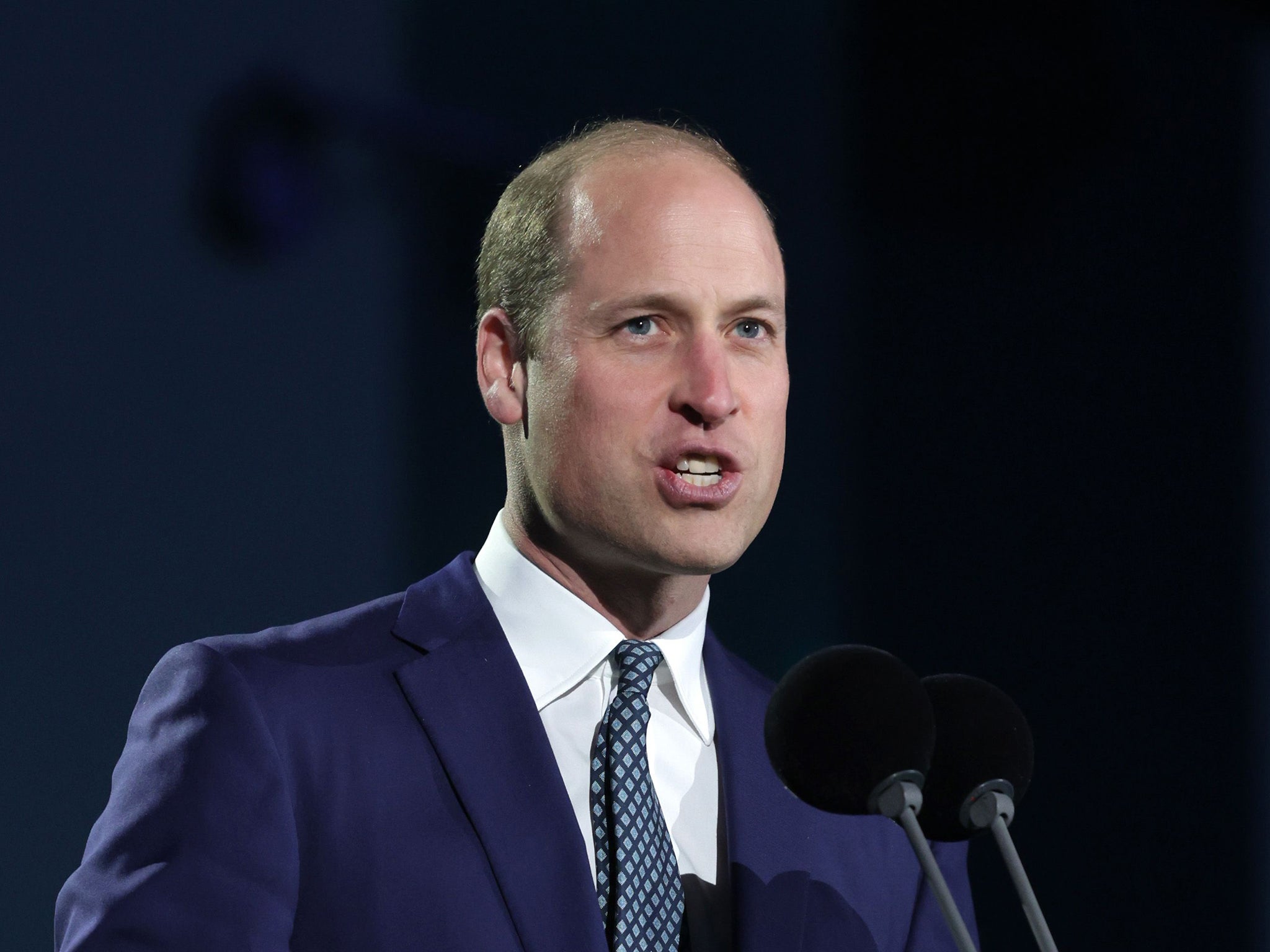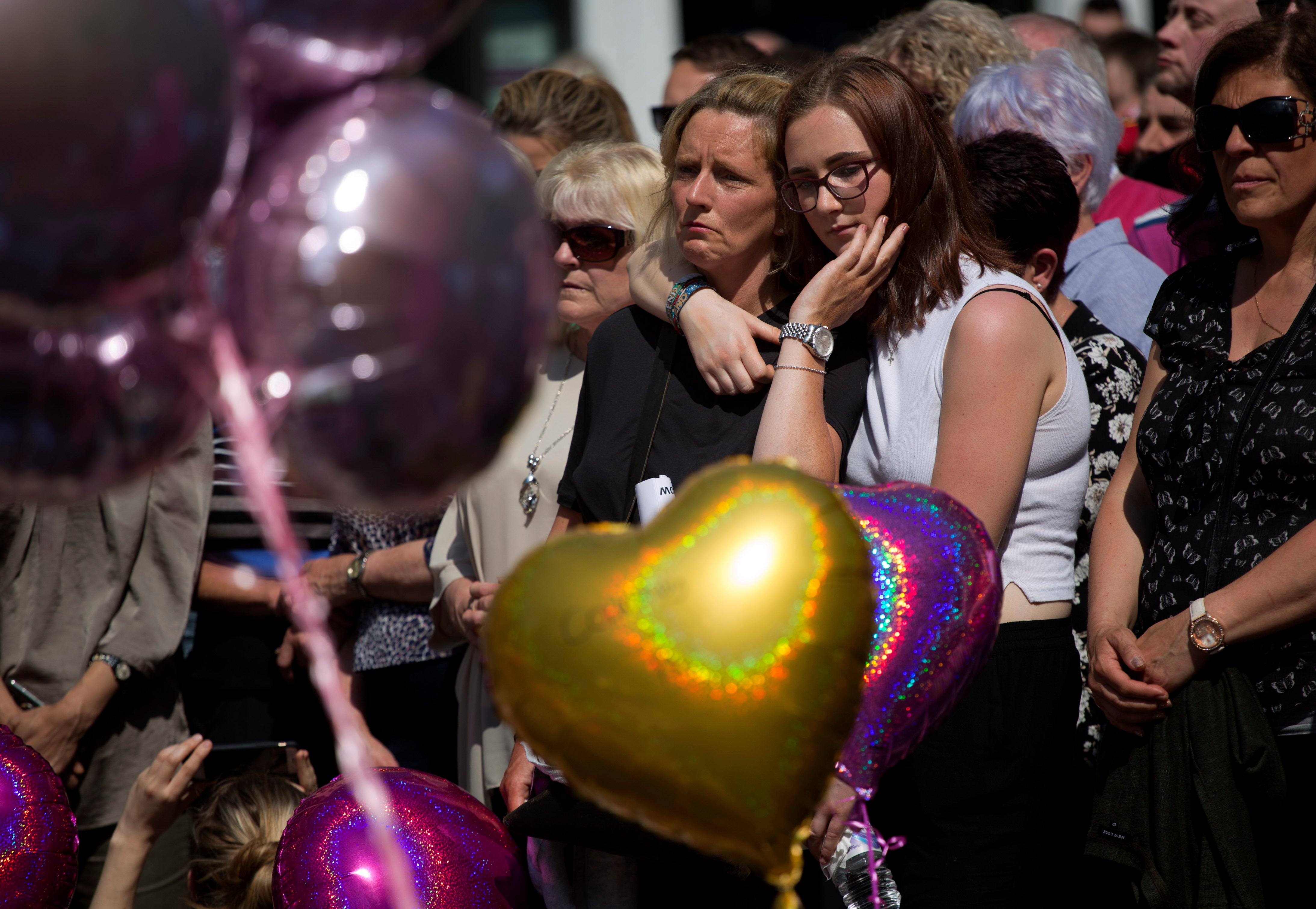Prince William urges change after survivors of Manchester Arena attack told it would ‘make them stronger’
Survey finds 29 per cent of child victims have never received any mental health support, six years after bombing
The Prince of Wales has called for a change in the way child victims of trauma are treated after a damning report found survivors of the Manchester Arena attack were told the bombing would “make them stronger”.
Victims who were as young as 10 when an Isis supporter targeted crowds leaving an Ariana Grande concert in 2017 have spoken publicly for the first time about their battles for help.
One spoke of a school tutor who “told me that I should take the attack as a positive experience – that this ‘hardship’ would make me a stronger person. He said not many young people experience hardships nowadays,” they added. “This felt totally insensitive so I didn’t return.”
Another survivor said they had “poured their heart out to a GP” but felt that the doctor dismissed their need for treatment, adding: “I was 15 and she said that, in the two years it would have taken for her to get me into CAMHS [child and adolescent mental health services], I would then be 17 and probably feeling a lot better.”
Prince William, who is patron of the National Emergencies Trust which carried out the report with Lancaster University, said young people who have experienced the trauma of terrorism “need the space to have their voices heard and feelings acknowledged”.
“We must listen to their stories now, in order to learn for the future. I look forward to seeing the change that it creates,” he added.
The research was published on the sixth anniversary of the bombing, which left 22 victims dead and hundreds injured following failings by MI5 and the emergency services.
Almost a third of young survivors surveyed said they had never received any professional support.
Of those, 40 per cent said support had never been offered, while 28 per cent said they had not felt comfortable asking for help and 14 per cent did not know where to find it.
For others, support only started months or years after the bombing, and some victims found that the professional help they were given “inadvertently introduced more trauma” as they recounted their experiences again and again.

Yasmine Lee, who was 12 when she was injured in the blast, said she was quickly given a “lot of support” for her physical injury but initially nothing for her mental health.
“I didn’t really think anything was wrong for a very long time,” she told The Independent. “It wasn’t until about nine or 10 months later that I filled out a survey that was sent out by the Greater Manchester Resilience Hub, and they were like ‘We think you should start getting some support.’”
Yasmine, who is now 18 and studying at university, said she later had years of helpful counselling and built a support network through friendships with fellow survivors. But she said she was shocked to find that others “weren’t getting what I was getting”, and believes she may have received support faster because of her physical injury.
“It’s so much harder being a child, because you’re still trying to grasp what the world looks like,” Yasmine added. “If something like that happened to me now, I would have reacted completely differently. I wasn’t aware of terrorism as a whole, you never think it’s gonna happen to you.”
Ruby Bradbourne, who was 11 when she survived the attack after attending the concert with her sister, told how she struggled to ask for support at school and faced delays when she did.

“They just told me to fill out this questionnaire, which didn’t help me in any way,” she added. “I had to wait for months for counselling, and when I had it I felt like I didn’t need it ... I just felt like I had to keep it to myself.”
Ruby said she only had one hour-long session with a counsellor and felt she should have had more support, adding: “I don’t want anyone else to go through anything like that, especially at such a young age.”
Some survivors who took part in the survey praised the care they received from mental health services and schools, but the report called for six key changes to improve the treatment of young terror attack victims in future.
Lead researcher Dr Cath Hill, who is also a co-founder of the Manchester Survivors’ Choir, said the proposed changes should “prevent children from having to relive their trauma time and again”.

The National Emergencies Trust said there was a “glaring gap” in knowledge about how disasters affect children.
The Greater Manchester Resilience Hub said it was still open to anyone affected by the attack, and had quickly established an outreach and screening process after the incident.
“The hub was set up within seven weeks following the attack, with staff from all four Greater Manchester mental health trusts,” a spokesperson said. “It was and still is the fastest large-scale mental health response to such an incident in UK history.
“More than 700 individuals were supported within the first few days, and then were prioritised under the psychological screening within the first few weeks. They included those people physically injured, bereaved families, and those on the police witness list that the police believed were experiencing psychological distress.”
Its statement said that the NICE guidelines at the time meant that officials waited three months to write to all ticket-holders for the concert to screen them for support. “We have supported over 3,800 individuals, more than 1,000 under-18s, and more than 500 family units,” it added.
More than 200 young survivors took part in the research, all of whom were under 18 at the time of the attack.
A government spokesperson said: “The government has worked to strengthen the support available to victims of terrorism, but we know there is still more to do.
“The Home Office Victims of Terrorism Unit is currently conducting an internal review into the support package provided to victims of terrorism, to better address their needs following a terrorist attack.”
Join our commenting forum
Join thought-provoking conversations, follow other Independent readers and see their replies
Comments


Bookmark popover
Removed from bookmarks